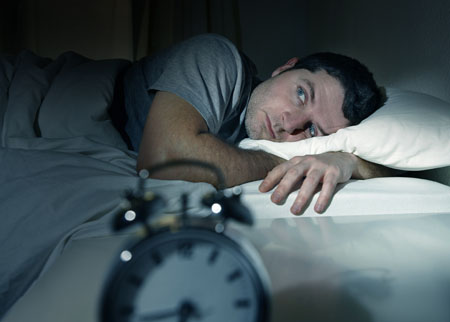Insomnia Plays Critical Role in Bipolar Disorder

In a 2021 article in the Journal of Psychiatric Research, researcher Laura Palagini and colleagues reported that insomnia symptoms can affect the course of bipolar illness. In a helpful summary and interview in the Psychiatry & Behavioral Health Learning Network’s Psych Focus, she stated that:
“1) BD patients in a depressive phase with clinically significant insomnia met a greater severity not only of depressive symptoms and suicidal risk, but also of early life stressors and the cognitive part of hopelessness, compared with patients without insomnia
“2) insomnia symptoms could predict mood symptoms, suicidal ideation and plans, and the cognitive component of hopelessness
“3) insomnia symptoms might mediate the effect of early life stressors on mood symptoms, hopelessness, and suicidal ideation and behaviors.”
Palagini suggested that “Insomnia symptoms should be easily addressed in clinical practice with 1–2 questions. Insomnia treatment should be considered as a treatment to prevent …relapse and recurrence [of bipolar disorder] and to prevent suicide and the effect of early life stress on [bipolar disorder].”
Editor’s Note: Regular nightly rating of mood, functioning, hours of sleep, medications, life events, side effects, and other comorbid symptoms on the Monthly Mood Chart Personal Calendar (pdf) is an easy way for patients with bipolar disorder to carefully track their illness trajectory and the completeness of their response to medications.
A decrease in the hours of sleep should be used as a possible early warning sign of impending difficulties, or even a new episode. Patients should discuss with their physician the threshold of insomnia (such as the loss of 2 hours of sleep for two days in a row) that should trigger a call to the physician, and what interventions the patient might initiate for lesser amounts of sleep loss and/or changes in mood. Heading these off early may prevent the breakthrough of a full-blown manic or depressive episode.
Lithium Corrects Circadian Rhythm Abnormalities in Bipolar Depression

At a recent scientific meeting, researcher Monica Federoff described new findings about lithium’s effects in people with bipolar I disorder, especially regarding circadian rhythms. The 12-week study included 386 participants with bipolar I. Some participants responded well to lithium, but even those whose bipolar disorder did not remit saw improvements in total symptoms, depressive symptoms, and manic symptoms.
Only those who were classified as good responders to lithium treatment showed improvement in circadian symptoms. Their depression improved in the direction of more “morningness,” and the authors suggested that “stabilization of circadian symptoms of depression may be an essential feature of lithium’s therapeutic effects in [bipolar] I patients.”

